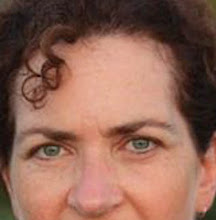Two weeks of “stay off your feet and take it easy” have left me parched--thirsty for contact with my yard, trails, fields and its life. And although I’ve done my best to sit and be the observer, so much of what I want to observe requires being out in it.
So, Sunday, my creative, problem-solving husband retrieved the old lawn tractor from the barn, lifted the mowing deck and handed me the key.
Escape was parked just outside the back door.
After dinner, camera hanging around my neck, I turned the key—and took off into the sunset in a blaze of…dust. The very dry ground, peeking through what remains of our crisp, brown grass.
As I neared the pond, 6 deer looked up from the other edge, stealing a drink at the old dam. I slowly stepped onto the dock to settle in; they stepped into the cover of the woods, but I could hear their feet rustling in the dry, fallen leaves. I assumed they’d move on into my neighbor’s field, but they remained, watching me watch.
Soon, a doe stepped forward toward the pond. Looking me in the eye, she stamped her foot. Not once, but several times. Her request of me was clear. In the 96-degree heat, they needed this space and its water more than I did.
I headed back to my little tractor and left the pond to the deer for this evening. There were plenty of other places to see—the goldenrod-covered fields glowing in the September sun, and the milkweed releasing its shimmering silken parachutes in the breeze.

New England Asters, late-season bloomers, provide nectar for butterflies and look like ribbon candies as the blossoms pass. 
 Scattered through the grasses are delicate, lacy, White Heath Asters—a blur of white from a distance, but perfect in every intricate, tiny detail.
Scattered through the grasses are delicate, lacy, White Heath Asters—a blur of white from a distance, but perfect in every intricate, tiny detail.

I couldn’t help but feel as if I were a cowboy, surveying his land. Across the top of the hill trail, bouncing and rolling in the saddle—over each rut, magnified by the little wheels of the tractor.
The noisy engine scared everything with an ounce of sense far from me.
But it felt good to be out, drinking it in.















































































